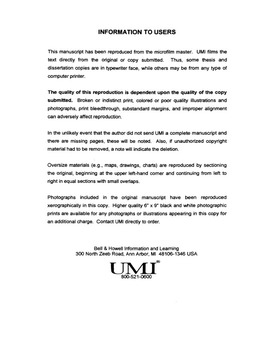| dc.contributor.advisor | Hartegan, James C., | en_US |
| dc.contributor.author | Nam, Hae Me. | en_US |
| dc.date.accessioned | 2013-08-16T12:30:45Z | |
| dc.date.available | 2013-08-16T12:30:45Z | |
| dc.date.issued | 1999 | en_US |
| dc.identifier.uri | https://hdl.handle.net/11244/5883 | |
| dc.description.abstract | In regressing the model, we expected to observe positive coefficient estimate for AD and SP and a negative coefficient estimate for DBT and P. For EPS and MKT coefficient estimate, our expected sign was either positive or negative. Our coefficient estimate for EPS could have either positive or negative value depending on if AD petition was filed. The MKT coefficient estimate also depended on whether or not AD was filed; however, there were other assumptions associated with the MKT, which explained either the negative or the positive sign. | en_US |
| dc.description.abstract | Second, it clarified some concerns regarding SEC regulatory policy that was not addressed in the past. SEC regulates insider trading by investigating any significant insider trading activity, especially after an announcement of corporate information such as earnings, mergers or acquisition. Insiders are regulated from such activity so that they would not benefit hugely from private information. Our study examined whether or not filing of AD complaints should be considered material. | en_US |
| dc.description.abstract | In generating our results we utilized FECL and REP Model. Our dependent variable was a discrete dummy variable with one if insider bought and zero otherwise. The explanatory variables consisted of AD petitions, which were also a dummy variable; EPS; DBT; P; MKT; and SP. | en_US |
| dc.description.abstract | Overall, we found evidence indicating that a relationship existed between corporate insider's decision to purchase equity and filing of AD petitions. Our assumptions about informed investors investigating the market and share price such as SP and P seemed evident. Although our contention that insiders examine EPS and DBT before purchasing equity showed inconclusive results, we conclude that EPS and DBT are good indicators in measuring health of firms. We however did find that most of these variables produced expected signs, indicating that there may be substance to our assumptions. (Abstract shortened by UMI.) | en_US |
| dc.description.abstract | The focus of our study was to find a relationship between filing of AD petitions and equity share purchases by corporate insiders. First, it examined whether or not corporate insiders received benefits from filing of AD petitions, thereby addressing concerns about trade policy. | en_US |
| dc.description.abstract | Lastly, there were no previous studies conducted concerning the relationship between insider buying and filing of AD complaints. Contributions in this area of the literature were mostly concerned with whether or not shareholders involved in AD complaints earn abnormal returns. | en_US |
| dc.format.extent | vii, 92 leaves ; | en_US |
| dc.subject | Economics, Finance. | en_US |
| dc.subject | Insider trading in securities United States. | en_US |
| dc.subject | Dumping (International trade) United States. | en_US |
| dc.title | Equity buying by corporate insiders and filing of antidumping complaints. | en_US |
| dc.type | Thesis | en_US |
| dc.thesis.degree | Ph.D. | en_US |
| dc.thesis.degreeDiscipline | Department of Economics | en_US |
| dc.note | Source: Dissertation Abstracts International, Volume: 60-11, Section: A, page: 4121. | en_US |
| dc.note | Adviser: James C. Hartegan. | en_US |
| ou.identifier | (UMI)AAI9949709 | en_US |
| ou.group | College of Arts and Sciences::Department of Economics | |
